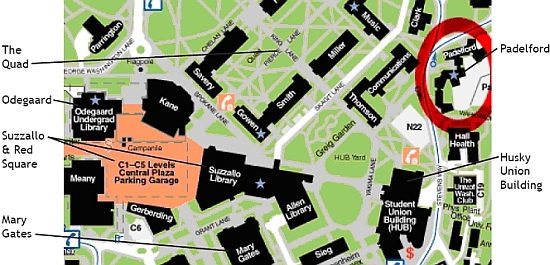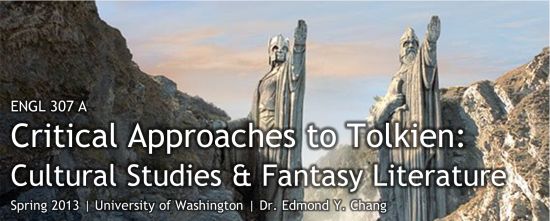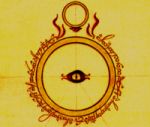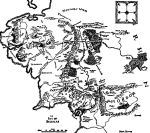|
ENGL 307 A Download the course policies and syllabus (PDF).
"Cultural Studies allows the analyst to attend to the many moments within the cycle of production, circulation
and consumption of [a text] through which meanings accumulate, slip and shift."
|
J.R.R. TOLKIEN, in the foreword to The Lord of the Rings, insists and argues, "I should like to say something here with reference to the many opinions or guesses that I have received or have read concerning the motives and meanings of the tale. The prime motive was the desire of a tale-teller to try his hand at a really long story that would hold the attention of readers, amuse them, delight them, and at times maybe excite them or deeply move them...As for any inner meaning or 'message', it has in the intention of the author none. It is neither allegorical nor topical" (xiv). This course will decidedly not believe the author's intentions, rather we will draw on the broad archive of Tolkien's novels, Peter Jackson's films, and scholarship as occasions to identify and explore the key concepts, moves, and terms of the interdisciplinary field of cultural studies. CENTRAL QUESTIONS AND ENGAGEMENTS INCLUDE: What are the different critical practices and methodologies of cultural studies? How might we employ different cultural studies approaches and lenses to Tolkien, film adaptations, and fantasy literature more generally? Why study fantasy, how is this oft dismissed "genre" important, and what values, ideals, and norms does it have? In this course, we will look at and analyze Tolkien through the lenses of cultural studies and deploy literature as theories about and dramatizations of different social relationships and realities, to unpack and analyze the intersections of cultural formations like race, gender, class, nation, and sexuality, particularly in the US context. Ursula K. Le Guin in "Why Are Americans Afraid of Dragons?" argues, "For fantasy is true, of course. It isn't factual, but it is true. Children know that. Adults know it too, and that is precisely why many of them are afraid of fantasy." This class will spend the quarter reading, watching, thinking, and writing about how and what these texts argue, reveal, narrate, hide, perpetuate, and complicate the world we live in. In other words, we will try to challenge Tolkien's denials above and to answer Le Guin's proposition about fantasy.
OVERALL, as a class, we will engage the techniques and practices of reading
literature and watching film. We will identify and develop different ways to read different kinds of texts--from
fiction to scholarship to visual and digital--we will read with pleasure, close read, and read for analysis
and argument. A requirement for the course is a well-developed curiosity about the world, about the culture
we live in, and about the cultural productions we imagine, produce, and consume. Students seeking W-Credit
will be accommodated.
|
"A single dream is more powerful than a thousand realities."
Required Course Texts & Materials
• Bruce Burgett and Glenn Hendler, Eds., Keywords for American Cultural Studies. |
|
Course Requirements
Major Papers (50%)
"Education is not the filling of a pail, but the lighting of a fire."
"I like nonsense, it wakes up the brain cells. Fantasy is a necessary ingredient in living, it's
a way of looking at life through the wrong end of a telescope and that enables you to laugh at life's realities."
|
Requirements & GradingYour grade should not be the sole exigence or motivation for this class. It is the hope of the course that you walk away from the class with something more. Find some pleasure and some edification and some knowledge from this class (or any class really) and success is usually not far behind. With that in mind, your grade will be a reflection of engagement, effort, close reading, critical thinking, writing, and participation. Major Papers (50%) You will be required to write up to three formal papers, each 4-6 pages in length, that engage each of the novels and theoretical and critical texts of the class. Papers will be collected three times during the quarter, approximately in Week 5, Week 8, and Finals Week. You must complete a minimum of two papers. Each paper will be graded and the average of the number completed will constitute 50% of your final grade. See the Major Paper prompt for more details and explanations. In-Class Quizzes (10%) There will be five or more in-class quizzes at various times during the quarter. These quizzes serve as a review of the preceding week's main ideas, terms, games, and readings. These quizzes will include identifications, short answers, and a brief essay. Annotated Bibliography (10%) Over the course of the quarter, you will research, read, and annotate academic and scholarly sources for class discussion and your Major Papers. You will keep a running list of useful, relevant, timely, and authoritative sources to be compiled into an annotated bibliography, which will be turned in at the end of the quarter. Your bibliography must include a minimum of ten sources and be in proper MLA format and style. See the Annotated Bibliography prompt for more details. Participation and Preparedness (30%) Preparedness and participation forms a large component of your final grade. It is essential that you prepare for class, attend class, and participate. Missing class may seriously compromise your ability to do well in this class. Again, negative participation will hurt your participation grade. Participation is determined by 1) your respectful presence in class, 2) your willingness to discuss, comment, and ask questions, 3) your preparation for class, which includes bringing required materials to class and doing all of the assigned reading for class, 4) your engagement in group work, 5) your care and use of the class's Tumblr (bookmark the addresses, check and comment regularly, think of the site as an extension of class): and 6) your interactions with me and other students. Finally, failure to turn in homework, incomplete assignments, or late papers will negatively impact your participation grade. W-Credit
If you are seeking W Credit for the class, you are required to complete all three Major Papers. See me at the start of the
quarter for details. In total, you must produce a minimum of 10-15 pages of formal, revised writing and earn a minimum of
a 2.0 average for the Major Papers to get W-Credit.
|
Download the course policies and syllabus (PDF).
"The sodomite had been a temporary aberration; the homosexual was now a species."
"Imagination is more important than knowledge."
"I see fashion as a proclamation or manifestation of identity, so, as long as identities are important, fashion will continue to
be important. The link between fashion and identity begins to get real interesting, however, in the case of people who don't fall
clearly into a culturally-recognized identity."
|
|
|
Attendance
Attendance is strongly recommended. If you are absent, you miss the explanation of an assignment, the discussion
of a reading, the chance to play and participate, and overall, the class as a community of learning. Also, you are
expected to be in class on time. Class will start immediately at the appointed time. In the first minutes of class I
may make important announcements, establish the agenda for the class meeting, begin immediately with an important lesson,
or field questions. If you come in after we start class, even by only a few minutes, you are late and we will mark you
as such. Chronic or conspicuous attendance problems will negatively affect your overall participation grade for the
class. If you know you are going to miss class, please let me know ahead of time (via email), if you can, and make
any necessary arrangements. And when you do miss class, always find another student to get class notes and see me in
order to make up missed work in a timely manner.
|
|
|
Major Paper Formatting 1) 1" margins top, bottom, left, and right on each page. 2) Single-spaced block header with your name, date, course, my name. 3) Appropriate title. No title page necessary. 4) Double-spaced body. Indented paragraphs (1/2 inch). 5) Standard Times Roman Font, 12 point only. Black ink only. 6) Correct MLA in-text parenthetical citation and quotation format. 7) MLA style bibliography. A paper without a bibiliography automatically fails. 8) Printed single-sided. Page numbers in the top right hand corner. 9) Proofread, edited, and revised carefully. Follow the directions on the assignment prompt. |
Assignment FormatAll papers must be typed or produced on a word processor. All documents should be saved in Microsoft Word format; if you do not have access to Word, then save your documents in RTF or Rich Text Format. All papers must follow the manuscript format outlined by the assignment. Unless otherwise noted, all papers must use MLA citation and documentation conventions. All papers must be neatly printed (in black), single-sided, stapled in the top, left-hand corner if necessary, and should not be three-hole punched. Papers that do not follow these format guidelines will not be accepted. They will be returned unread to you. Papers will be regarded as late until they are resubmitted in the proper format. Always make a backup copy of every paper you turn in, lest you be one of the unhappy people whose paper is eaten by the computer. You may even want to take the precaution of e-mailing your paper to yourself as an attachment at least a couple of times during the drafting process and certainly BEFORE you exit the document for the last time and leave the computer lab, your friend's computer, or even your own computer. This way, even if you lose your disc or your paper gets mysteriously erased, you still have a copy in your e-mail files.
Evaluation RubricOver the course of the quarter, your assignments will receive feedback and comments that will identify what you are doing well and what still needs improvement. Your grades assess your fulfillment of the assignment, the quality of work, detail, analysis, and argumentation, overall effort, and finally, style, polish, and risk taking. Consider the following evaluation rubric as signposts or a kind of legend to your progress and evaluation:
• Outstanding (3.7-4.0): Offers a very highly proficient, even memorable demonstration
of the trait(s) associated with the course or assignment goal(s), including some
appropriate risk-taking and/or creativity. |
Late Assignments All assignments must be done completely and turned in on time. Lateness will subtract from your assignment's final grade and work must be turned in as soon as possible. Note that I will not comment on late work. However, you still need to complete late work for a complete portfolio. If you miss class on the due date of a paper, you must notify me and make arrangements to get the paper to me as soon as possible. Unless previously arranged, I do not accept assignments via email. Remember that a paper has not been officially handed in until it is in my hands. Never turning anything in late is always the best policy.
|
|
Contact Ed
Office:
Contact Brad
Office: Download the course policies and syllabus (PDF).
|
Finding HelpMy office and office hours are listed in the left sidebar, as are the course teaching assistant Brad Gerhardt's hours. We are available during our listed times and by appointment to help you. I encourage you to come see us early in the quarter even if it is just to talk about the class, about the assignments, or about school in general. I may ask you to meet with me when I think a conference would be useful. My office is located on the third floor of the A-Wing of Padelford Hall (northeast of the HUB), Room A-312. Brad's office is on the fifth floor of the B-Wing of Padelford, Room B-522. See http://www.washington.edu/maps/?l=pdl.

I am also available electronically by email and the course blog. Email and the blog are the best means of contacting me. I will do my best to answer your emails and blog posts, usually within twenty-four hours. If there is an emergency and you need to reach me, please contact the Undergraduate English office in A-2-B Padelford. Furthermore, when time permits, I will supplement my office hours with virtual hours via AOL Instant Messenger or Google Talk (nickname: EDagogy); if I am logged in, during reasonable hours, you are more than welcome to discuss the class or ask questions. Please, when you initiate an IM conversation for the first time, please identify yourself to me; also, be patient because my responses may not be immediate. You can find additional writing help at the Odegaard Writing and Research Center (OWRC), which is a good resource for this class and other classes. OWRC is located on the third floor of Odegaard Library and offers a variety of services including help with papers, brainstorming ideas, help with reading, and research. See http://depts.washington.edu/owrc/ for more information. Moreover, the Center for Learning and Undergraduate Enrichment (CLUE) is also a good resource. CLUE is located in Mary Gates Hall Commons and offers tutorial sessions for most freshman lecture courses, skills courses, access to computer labs, and drop-in centers for math, science and writing. See http://depts.washington.edu/clue/ for more information.
Further resources, both on- and off-campus can be found on the Links page of the course website:
http://staff.washington.edu/changed/307/links.html.
|
"Fantasy is an exercise bicycle for the mind. It might not take you anywhere, but it tones up the muscles
that can. Of course, I could be wrong."
"I want to suggest a different metaphor for theoretical work: the metaphor of struggle, of wrestling with the
angels. The only theory worth having is that which you have to fight off, not that which you speak with profound
fluency. I mean to say something later about the astonishing theoretical fluency of cultural studies now."
|
|
"If one is lucky, a solitary fantasy can totally transform one million realities."
"To be truly radical is to make hope possible rather than despair convincing."
|
Academic DishonestyPlagiarism, or academic dishonesty, is presenting someone else's ideas or writing as your own. In your writing for this class, you are encouraged to refer to other people's thoughts and writing -- as long as you cite them. Many students do not have a clear understanding of what constitutes plagiarism, so feel free to ask questions about these matters at any time. Plagiarism includes:
• a student failing to cite sources of ideas If you have any doubt about how to cite or acknowledge another's writing, please talk to me. It is always better to be safe than sorry. As a matter of policy, any student found to have plagiarized any piece of writing in this class will be immediately reported to the College of Arts and Sciences for review. For further information, please refer to UW's Student Conduct Code at http://www.washington.edu/students/handbook/conduct.html. Play it smart, don't plagiarize!
AccommodationsIf you have a registered disability that will require accommodation, please see me immediately. If you have a disability and have not yet registered it with Disability Resources for Students in 448 Schmitz Hall, you should do so immediately. Please contact DRS at 206-543-8924 (Voice) or 206-543-8925 (V/TTY) or 206-616-8379 (FAX) or via their website at http://www.washington.edu/admin/ada/dss.htm. I will gladly do my best to provide appropriate accommodation you require.
UW SafeCampusPreventing violence is everyone's responsibility. If you're concerned, tell someone. For more information visit the SafeCampus website at http://www.washington.edu/safecampus and keep the following in mind:
• Always call 911 if you or others may be in danger. |
"If one is lucky, a solitary fantasy can totally transform one million realities."
"Every time I see an adult on a bicycle, I no longer despair for the future of the human race."
|
|
|
© 2007-13 Edmond Chang. All original material. All rights reserved. Email the webmaster of this site. These pages are best viewed with Mozilla Firefox or Internet Explorer. Open your browser to the largest viewable area. These pages are hosted by the University of Washington Computing & Communications system. |
|



















